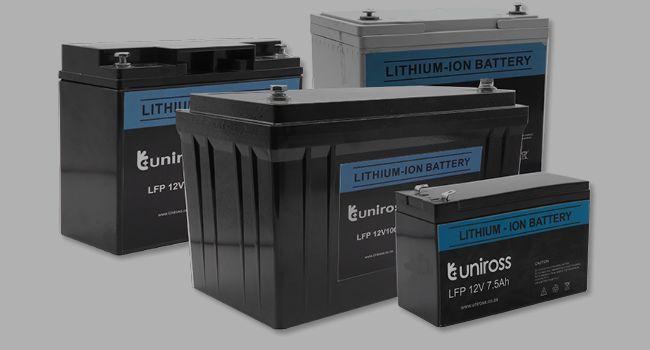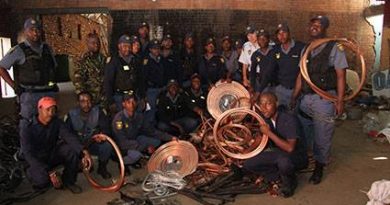Uniross Stresses the Importance of Safety and Quality in Lithium Batteries Following Recent Power Station Recall
In light of the recent recall of certain portable power station models due to the risk of overheating and explosion, Uniross has emphasised the importance of safety and quality in selecting a product using a lithium battery. The National Consumer Commission has urged consumers to return the affected products which were sold by various retailers including Takealot, Builders Warehouse, Makro, Incredible Connection and HiFi Corp.
“Lithium batteries are widely used in portable devices such as smartphones, laptops, inverters and power banks, and are required to provide reliable backup power during load-shedding. However, some lithium batteries have been known to overheat, posing a fire and explosion risk. To ensure consumer safety, it is essential to purchase lithium-based products from a reputable supplier with a credible track record,” says Michael Rogers, MD of Uniross Batteries.
“Once a battery has been manufactured and the final label applied, there is no possible way of differentiating a good quality battery from a poor one. Yes, you can measure the open circuit voltage, you could even measure the voltage under load, or if you have the means, you could even test the capacity of the battery. But none of this will indicate whether the battery has been manufactured in accordance with internationally accepted practices and, more importantly, if it is going to be safe in your equipment after a few months of usage.”
Mr Rogers explains that battery manufacturing today is a complex process, and now more so than ever, given that most new battery powered devices are being designed with rechargeable lithium batteries. In the past, the old nickel based batteries (Ni-Cd and NiMh) were relatively easy and safe to manufacture. Lithium-based batteries are far more complex with a far smaller margin for error in the manufacturing process.
“Ordinarily, this would not be a bad situation, however the vast majority of these small manufacturers do not have the facilities, equipment or the technical know-how to safely and consistently produce these lithium batteries. Yet, despite this, they continue to do so regardless of the consequences.”
The battery manufacturing standards to be adhered to include the United Nations Transport standard – UN38.3 in which the battery is subjected to a range of abusive and destructive tests.
“In one of the tests the battery must withstand a short circuit for at least one hour without the battery temperature exceeding 170°C. In addition, the battery is not allowed to rupture or catch fire during the test and within six hours following the test.
Mr Rogers notes that as from 1 April 2023 Santam has announced it will implement a general electricity grid failure exclusion on all policies, and Outsurance is reviewing its insurance cover in the case of a grid failure. Momentum, Naked, Outsurance and Santam say they have seen significant increases in insurance claims for damages to goods due to load-shedding.
“As South Africa continues to experience frequent bouts of load shedding, security systems are also being severely compromised, not damaged as such, but systems malfunctioning due to the use in many cases of inferior batteries. A non-functioning or exploding battery may result in an insurance claim being rejected.”




